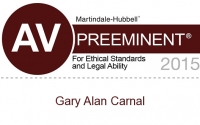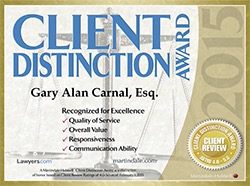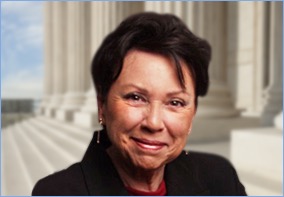Understanding Guardianship: What is it and is it right for my family?
As parents or loved ones get older, many begin to have difficulty making their own decisions or managing their finances. In those circumstances, it can be challenging for children or caregivers to know how to provide protection for their loved ones. One option available to provide care and support to older adults is guardianship.
What is Guardianship?
Guardianship is a legal process by which someone (a guardian) gains the rights and responsibility to make certain decisions for another person (a ward). According to the National Guardianship Association, guardianship may be a good option if a loved one or parent is no longer able to make decisions or manage their finances, or if he or she has become susceptible to fraud or undue influence. While a ward may lose some of his or her rights, the guardian is able to protect their loved one’s interest.
Florida law allows for several different types of guardianship. Limited guardianship gives some, but not all, rights and decision-making power to the guardian while reserving some rights and decision-making power for the ward. Plenary guardianship gives all delegable rights and decision-making power to the guardian.
Who can be a Guardian?
If the guardian is a Florida resident, the only requirement is that they be over the age of 18. If the guardian is not a Florida resident, they are required to be over 18 and have a familial relationship. Florida law allows for spouses, siblings, aunts, uncles, nieces, parents and children (including adopted children) who are not residents of Florida to be appointed as guardians of Florida residents.
Who is eligible for guardianship?
Under Florida law, there are two ways to gain guardianship over a ward. With a voluntary guardianship, a ward who is mentally competent, but has difficulty making decisions or managing his or her finances, can file a petition for guardianship. This may benefit children who are concerned about aging parents. If a parent is having difficulty making decisions or managing bills, that parent can request that their child – or another person meeting Florida’s guardianship requirements – become a guardian for the care and management of their estate.
If a person does not voluntarily petition the court to appoint a guardian for themselves, the potential guardian can file a petition with the court for adjudication of incapacity. In that instance, the potential guardian must show that the ward is mentally or physically incapacitated. The ward must receive notice and has the right to an attorney representing their interests during the hearing.
Florida law also requires that guardianship be the least restrictive means of care; if another process or option is available that provides adequate support, care, and protection while preserving the rights of the incapacitated or vulnerable adult, guardianship may not be appropriate.
Ensuring the safety and care of your loved ones is important. If you have questions about whether or not guardianship is right for you or your loved one, contact Carnal & Mansfield, P.A. in St. Petersburg for a consultation today.







